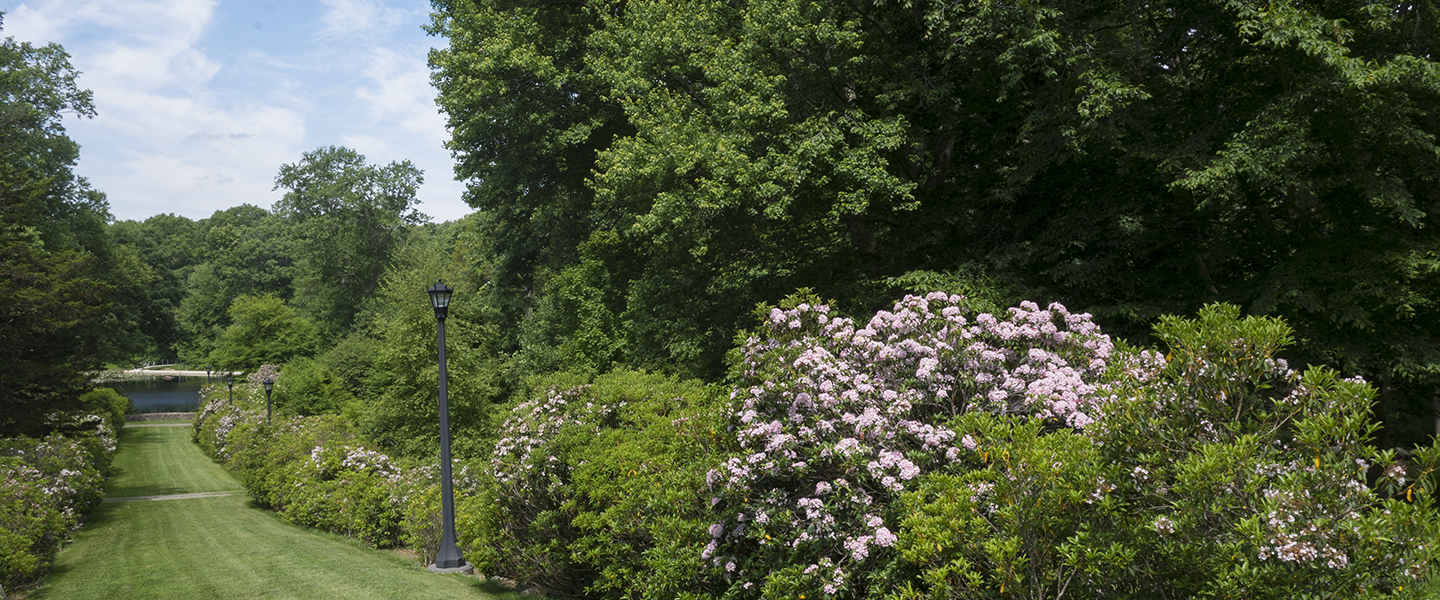
New arboretum director named
Connecticut College has named Miles Schwartz Sax as the new Charles and Sarah P. Becker ’27 Arboretum Director, effective Aug. 1, 2019.
The Connecticut College Arboretum, one of the most cherished resources on campus, consists of a very diverse 750 acres that include the landscaped grounds of the College as well as the surrounding plant collections, natural areas and managed landscapes.
“The Arboretum has a long history of doing exceptional work in land conservation and ecological landscape management, and I look forward to using this rich history as a foundation to continue to grow and expand the capacity of the institution,” Sax said.
Sax received a master’s degree in public garden leadership in 2014 and a Ph.D. in horticultural biology in 2019 from Cornell University. His academic research focuses on issues relating to urban horticulture, tree selection and evaluation, stress physiology and rare plant conservation in the context of an increasingly urbanizing and warming planet.
Hailing from western Massachusetts, Sax grew up exploring the forests, coastlines and mountains of New England. While working at The Arnold Arboretum of Harvard University, he found his calling in the field of public horticulture while managing and researching the species apple (Malus) collection. Inspired by the capacity of botanic gardens to create immersive environments that foster public engagement and stewardship of the planet's flora, he gained further experience in the field of public horticulture working at The Morton Arboretum, Cornell Botanic Gardens and the Stellenbosch University Botanical Garden in South Africa.
As director, Sax will be overseeing the College’s prized living laboratory, which is incorporated into more than 30 separate courses with particular emphasis on environmental studies and the biological sciences. He plans to expand on the rich history of the arboretum by designing and implementing new and exciting education programs and environmental tours that will be available to both the College and local communities.
“With expertise in public gardens and woody plants, as well as in conservation, Miles is uniquely qualified to lead the arboretum, and we’re thrilled to welcome him to the College,” said Jeffrey Cole, dean of the faculty and professor of anthropology.
“It’s clear that the Arboretum is beloved by students, faculty, staff and alumni, and I’m really excited to have the opportunity to apply my background in environmental horticulture, research and education to fulfill the mission of such a great organization,” Sax added.


